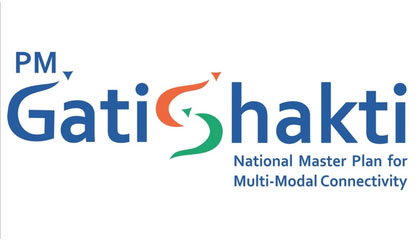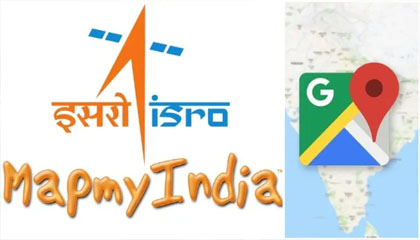Farmer welfare schemes introduced by Modi Govt
The current government is led by Prime Minister Narendra Modi, a visionary who has taken strategic steps to accelerate a transformation in the farming sector with an ambition to empower farmers.
It is important to acknowledge the numerous farmer welfare schemes that have been introduced to empower and uplift the agriculture sector. Under PM Modi’s leadership, these initiatives have aimed to improve the lives of farmers by providing financial security, skill development, market access, and sustainable agricultural practices.
Under the leadership of our PM, we are positive that farming will become a lucrative profession at all levels. Farmers feel empowered and they will take the agriculture sector to great heights, contributing to the overall GDP in a bigger way.

The Gati Shakti Master Plan, introduced by PM Modi on 13 October 2021, stands as a significant undertaking that aims to enhance collaboration among various ministries, states, and departments.
Acknowledging the pivotal role of port infrastructure in driving economic growth, the Modi government has undertaken ambitious endeavours to enhance and modernise India's ports.
Under the PM Gati Shakti National Master Plan For Connectivity, the Indian Government has introduced a novel digital tool aimed at addressing the challenges of project delays
Over the past years, the government has successfully launched 15 Vande Bharat trains, with plans to manufacture an additional 400 Vande Bharat express trains in the next three years
In a significant move, the government demonstrated its boldness in the budget by raising the capital investment outlay to Rs 7.5 lakh crores.
Pradhan Mantri Krishi Sinchai Yojana (PMKSY)

Pradhan Mantri Krishi Sinchai Yojana (PMKSY): Ensuring Farmers' Prosperity through Irrigation
Pradhan Mantri Krishi Sinchai Yojana, also known as PMKSY, is a government initiative in India aimed at improving the lives of farmers by providing better access to irrigation facilities.
The Importance of Irrigation
Irrigation means supplying water to crops, which is vital for agriculture. Many Indian farmers depend on rainwater for their crops, and PMKSY seeks to reduce this dependency by ensuring water availability through irrigation.
Key Objectives
PMKSY has three main objectives:
Ensure Water for Every Farm: The scheme aims to bring water to every field, ensuring that all farmers have access to irrigation facilities.
Increase Crop Productivity: With regular water supply, crop productivity is expected to increase, leading to higher incomes for farmers.
Water Use Efficiency: PMKSY also focuses on using water efficiently to conserve this precious resource.
Implementation
PMKSY is implemented at the national, state, and district levels. It includes the construction of new irrigation structures, the renovation of existing ones, and the promotion of efficient water use practices.
Benefits for Farmers
Farmers who benefit from PMKSY can expect increased agricultural production, reduced risks due to drought, and improved livelihoods. This scheme ultimately aims to uplift the rural farming community.
Conclusion
Pradhan Mantri Krishi Sinchai Yojana is a significant step towards transforming Indian agriculture. By ensuring better access to irrigation, it helps farmers grow more and prosper, contributing to the nation's overall agricultural development and food security.
Paramparagat Krishi Vikas Yojana

Paramparagat Krishi Vikas Yojana (PKVY): Promoting Traditional Farming Practices for Sustainable Agriculture
Paramparagat Krishi Vikas Yojana (PKVY) is an Indian government initiative that encourages and supports organic farming using traditional and indigenous agricultural practices. Launched under the National Mission for Sustainable Agriculture (NMSA), PKVY promotes eco-friendly and sustainable farming methods.
Key Objectives
PKVY aims to achieve several important objectives:
Promote Organic Farming: The scheme encourages farmers to shift from conventional chemical-based farming to organic farming methods.
Preserve Indigenous Knowledge: It seeks to preserve and promote traditional farming practices and indigenous knowledge systems.
Ensure Soil Health: PKVY focuses on enhancing soil fertility and reducing the harmful effects of chemical fertilizers and pesticides.
Boost Farmer Incomes: By adopting organic farming, farmers can often fetch higher prices for their produce in the market, leading to increased income.
Implementation
PKVY is implemented at the grassroots level by forming groups of farmers called "Farmer Producer Organizations" (FPOs). These FPOs work together to adopt organic farming practices. The government provides financial support and training to these groups to facilitate the transition to organic agriculture.
Organic Certification
Under PKVY, farms are required to follow strict organic farming practices. They are also encouraged to obtain organic certification, which adds value to their produce in both domestic and international markets.
Benefits
Farmers participating in PKVY benefit from reduced input costs (as they avoid purchasing chemical fertilizers and pesticides), improved soil health, and increased demand for their organic produce. Additionally, organic farming is environmentally sustainable and promotes biodiversity.
Conclusion
Paramparagat Krishi Vikas Yojana is a commendable initiative that not only supports farmers in adopting eco-friendly and sustainable farming practices but also contributes to the overall health of the environment. It promotes self-reliance among farmers, reduces their dependency on expensive chemical inputs, and ensures the availability of healthier and safer food for consumers.












